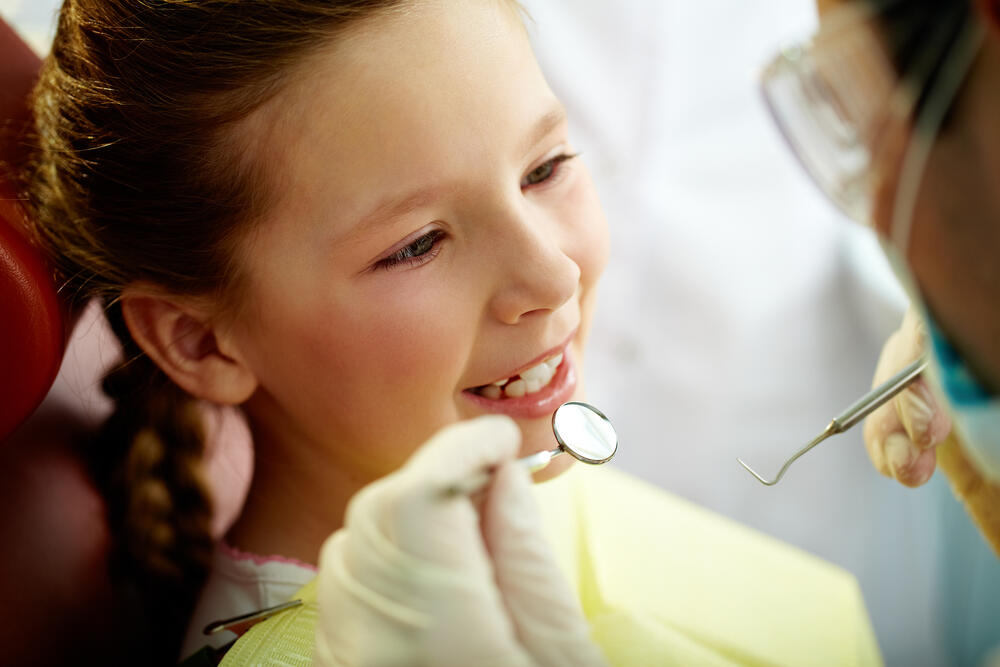Your primary concern is your child’s well-being, and oral hygiene is a crucial component of general health. It is your responsibility to look after your child’s gums and teeth. You may set your children up for a lifetime of good dental hygiene by starting them young.
Your child’s general health depends on their teeth. They assist your child in eating and speaking. Strong oral hygiene habits assist your child in developing good dental habits as they grow. Infection, illness, and other dental issues can all be caused by poor oral hygiene.
Oral Hygiene for Children
All of a baby’s teeth are there when they are born. You can’t see them since they’re hidden in the gums. Baby teeth begin to break through the gums around the age of six months, but it is vital to establish basic dental hygiene for infants even before the first tooth shows. Gums that are healthy contribute to healthy teeth.
As children get older, their oral hygiene habits should evolve as well. By the age of three, children have lost all of their baby teeth. These are referred to as primary teeth. Around the age of six, baby teeth begin to fall out, and the permanent, or adult, teeth begin to emerge. It’s common for newborn teeth to have gaps between them. They make room for the long-lasting teeth to erupt. The bulk of permanent teeth have emerged by the age of thirteen.
Practices for Oral Care
After each bottle or meal, wipe your baby’s teeth with a gentle towel or cotton. Wipe your child’s teeth with a soft cloth or cotton after each bottle or meal. This practice will help to eliminate bacteria that can cause tooth decay. Put the bottle away after your child has finished drinking to avoid tooth rot from baby bottles. Tooth decay can occur when neonates drink the bottle’s milk or juice for extended periods or drift off to sleep with the bottles.
Schedule your kid’s first dentist appointment around their first birthday, perhaps as soon as their first baby tooth develops, whichever comes first. Dental flossing should begin when two teeth erupt next to one other, with parental assistance. When children can floss on their own, they should floss independently (Usually by the age of six). Mouth washing is typically suggested by the age of seven, assuming your child is capable of doing so.
Infant Teeth Cleaning
As soon as baby teeth erupt, they should be cleaned. Until your child is six months old, use fluoride-free water. Encourage your kids to brush their teeth once they’ve developed the necessary coordination. Brushes should be replaced every two to three months. Following the administration of medicine, children’s teeth should be brushed. Medicines may eat away at tooth enamel, which acts as a natural barrier between the teeth and the environment.
Preteens’ Oral Hygiene
When children get older, so more of their permanent dentition grows, maintaining a strict daily oral care practice is more vital than ever to keep their gums and teeth healthier. On the other hand, preteens can be challenging to keep motivated when it comes to dental hygiene.
To Help Your Youngster Stay on Track, Try the Following Suggestions from Pediatric Dentist Indianapolis IN
It’s a good idea to educate preteens that good dental hygiene can help them feel better as they become more self-aware. Encourage your kid to brush their teeth twice a day for two minutes using toothpaste that not only protects caries and strengthens teeth but also offers kids comfort in their breath. For preteens, brushing with a power toothbrush could be more fun.
Because the majority of permanent dentitions have developed at this age, flossing is essential for preventing cavities and keeping their mouth fresh. Kids who participate in sports should be taught to wear a mouth guard to protect their teeth from a facial injury. When your child’s braces come off, make sure they brush and floss their teeth thoroughly to avoid white stains on their teeth.
Suggestions to Make Dental Hygiene More Enjoyable For Children Kids Dentist Indianapolis IN
Allow children to select their toothbrushes. They can choose one based on their favorite color or character. Allow children to assist in the selection of toothpaste. They are free to choose their favorite flavor. Teach them about dental hygiene by motivating them to read books or watch videos.
Set a timer to ensure that your children wash their teeth for two minutes. Or, to help them keep track of time, play their favorite music. Reward children who take good care of their teeth. Don’t feed them or give them sweet goodies. Instead, provide something healthful and straightforward, such as apple slices or a gold star. Plan a pleasant activity after your child’s dentist appointment.
Conclusion
The increasing evidence suggests that the primary dentition problems are indicators of and contributors to poor oral health in adolescence and adulthood. All dental practitioners must work together to develop more creative prevention strategies and improve their approaches to restoring and conserving primary and juvenile permanent teeth to attain excellent oral health for life. Because they cannot speak for themselves, the pediatric professional must continue to work toward treatments that will provide children with comfortable and functional basic dentitions, healthful young permanent dentitions, and maximum oral health during adulthood. Adequate funding for children’s oral health studies and suitable teaching for medical doctors and pediatric dental professionals is crucial.
Different forms of care and techniques for treating caries will surely exist in the future, not only for children but also for adults. According to the research, many children are not getting appropriate or adequate dental services. The pediatric dentist should be open to experimenting with innovative procedures such as repairing, capping, and stopping dental caries. Skipping this in children will only increase the risk of long-term problems later in life, compromising oral and overall health.



